Profile
Inside the mesmerisng world of Merck Foundation’s Dr Rasha Kelej
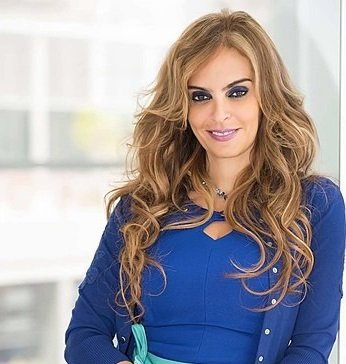
Infertility is a global issue, but has serious psychological trauma and social stigma, especially on women in Africa.
In some cases, it ends up in verbal and physical abuses, violence in marriage and many times divorce. This is why infertility remains an issue in Africa that needs to be addressed.
One woman who is determined to change the lives of those affected by infertility is Egyptian Senator, Dr. Rasha Kelej. She is the first African woman to be the Chief Executive Officer, (CEO) of Merck Foundation, (one of the world’s most important foundations) who has kept her efforts going for the last 10 years.
Dr. Kelej has worked towards breaking down barriers when it comes to challenges women living with infertility in Africa face. In promoting healthcare intervention, garnering media support to help remove the stigma, and facilitating further education for girls, her efforts have ignited positive change on the continent.
Impact
Dr. Rasha Kelej is the brain behind the inspiring ‘More Than A Mother’ campaign – a rallying call against female infertility stigma – for which she was recognised as one of the Most Influential Africans of 2019 and 2020.
The campaign, one of the most successful causes that has been spearheaded by Merck Foundation, empowers childless and infertile women through access to information, health, change of mindset and economic empowerment.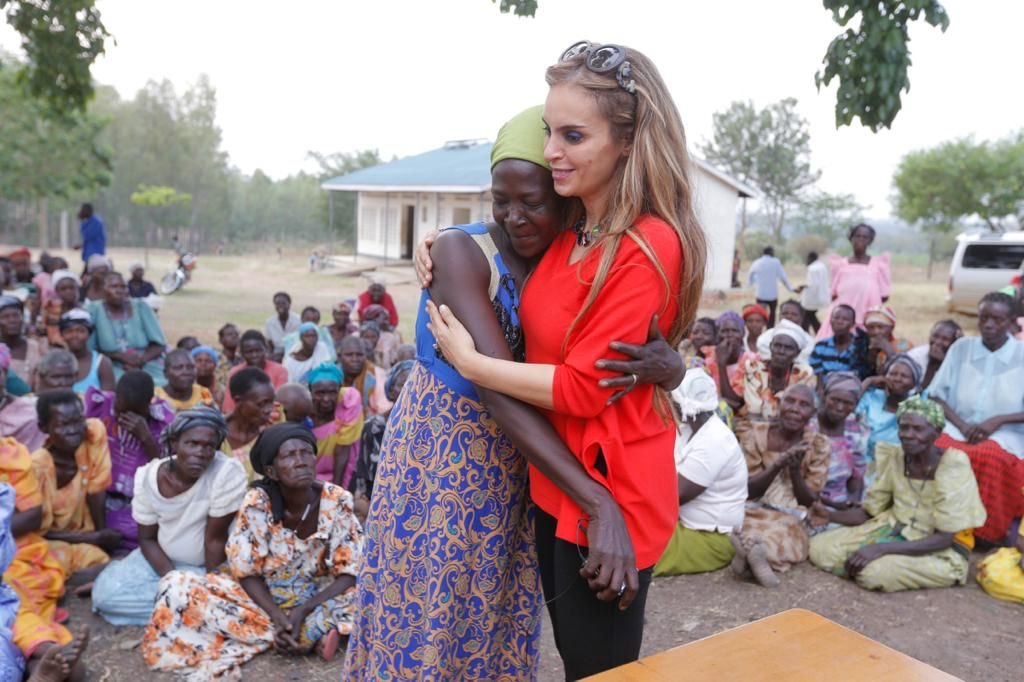
More than 20 African First Ladies, including Mrs Rebecca Akufo-Addo, have rallied behind the campaign as Ambassadors of “Merck Foundation More than a Mother,” which is very impressive. This campaign provides training for Fertility Specialists and Embryologists to build and advance fertility-care capacity in Africa, Asia and developing countries.
So far, Merck Foundation has provided specialist training to more than 180 local fertility specialists and embryologists, and more than 150 Sexual and Reproductive-care Specialists from Ghana and 36 other countries.
Under her headship 1,700 media representatives from Ghana and 29 other countries from Africa and Latin America were trained on how to report on such sensitive issues and raise awareness in their respective communities.
But that is not all! Dr Kelej has in her capacity as CEO of Merck Foundation, developed many other impactful programmes such as the Merck Foundation First Ladies Initiative (MFFLI), Merck Capacity Advancement Programme, Merck Cancer Access Programme, Merck Foundation Diabetes Blue Points Programme, and Merck STEM for women and youth, which Ghana was a beneficiary.
A role model
Senator Dr. Rasha Kelej was appointed by the President of The Arab Republic of Egypt as a member of the Egyptian Senate in 2020.
Lovingly called ‘Mama Africa’, Senator Kelej is an inspirational pioneer in transforming patient care in Africa. Over 1,300 doctors from 42 countries, including Ghana, have benefited from Merck Foundation scholarships of specialties training in critical fields.
“During Coronavirus pandemic, it has been more important than ever to build capacity and train specialised doctors. They may have a general practitioner, but no specialists. We simply made history in these countries such as The Gambia, Burundi, Guinea & Liberia,” she said this at one of the training programmes regarding the havoc COVID-19 has wreaked on the globe.
She has launched “I Can” Mentorship programme and “90 Minutes with Dr. Rasha Kelej” where, her knowledge and 27 years of experience can help in encouraging and guiding young Africans.
A style icon
Dr. Kelej is truly an African fashion icon and a champion of empowering fashion and art with purpose in Africa through supporting and mentoring potential new African fashion designers. She launches an annual competition through Merck Foundation for best design, song and film that carry messages to address sensitive social and health issues.
She has this for Africa and the rest of the world, “My vision is to develop a community of young African fashion designers in order to catalyse a movement whose reach extends far beyond just fashion. But to create a culture shift and be the voice of the voiceless in their communities.”
According to her, “Fashion industry has already got enough flaks for being superficial. Let’s change this perception and create a meaningful fashion trend to educate our communities.”
In the field of music, Senator Rasha has produced and directed an inspiring pan- African song called, ‘My White Army’ as her personal contribution to thank the doctors and nurses fighting on the front lines of the COVID-19 battle.
The song, featuring singers from 11 African countries, in three languages; Arabic, English and French, has received commendations across the continent. Moreover, 20 songs have been released with popular African musicians of which two Ghanaian artistes, Cwesi Oteng and Adina, took part.
“This is my passion, and I am inviting all musicians across Africa to contact me and work with us to make a change. I am eagerly waiting,” she says.
Advice
“Passion, dedication, consistency, hardwork, strategic thinking, flawless execution, and close follow-ups are the key components to success, along with the ability to network and communicate rightly with the partners. Honesty and trust are also required to be able to succeed in such a field.
“Believe in yourself, work hard and never allow anyone to get you down. Put your heart, mind and soul into everything you do. And when you make it, do not forget to support others around you,” she adds, to drum home the need for the succesful individuals to help those who are in dire need of help or support.
What next?
She is planning to start two important projects pretty soon.
“I will begin production of a TV programme directed at African countries to unearth their fashion talents, and also start my own fashion line targeting Africa, through which I will cooperate with new talented designers from time to time to spread community awareness in rural African communities. It is not only my hobby, but it is also part of my personal contribution towards my beloved Africa.”
With these creative initiatives, Senator Dr. Rasha Kelej is cementing her position in African pop culture and has truly become one of Africa’s unsung ‘sheroes’ of women empowerment and health advocates.
By Edem Mensah-Tsotorme
Profile
Albert Litela Obidiaba: The artist who wove Ghana’s soul into the King’s Baton
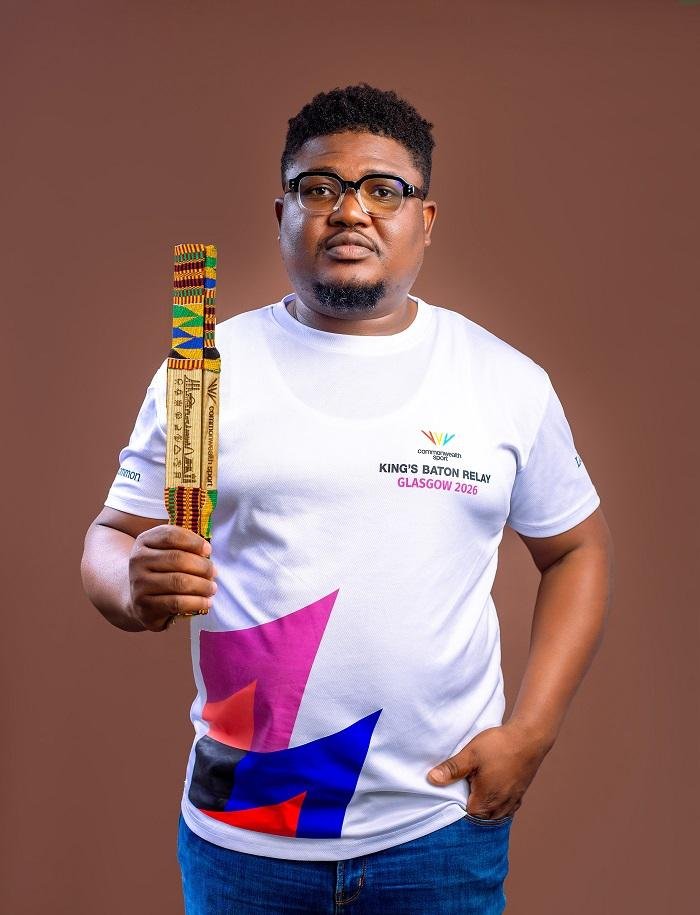
When the world’s eyes turn to the King’s Baton on its global journey, one of Ghana’s most profound artistic stories travels with it. It will be a story of creativity, culture, and national pride crafted by Albert Litela Obidiaba.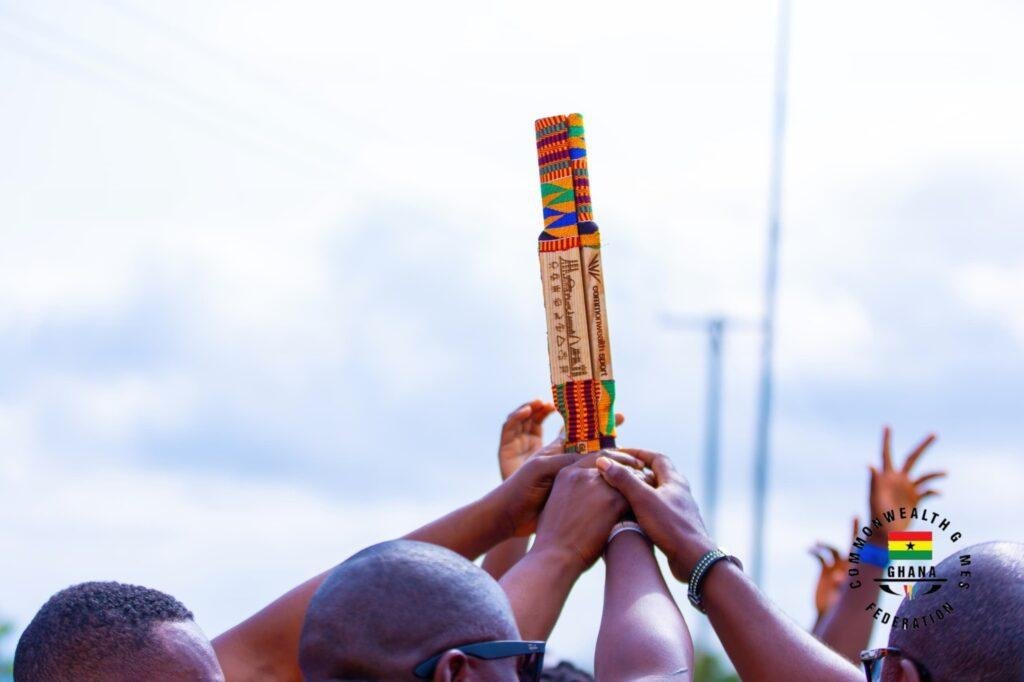
From the quiet town of Old Baika in the Oti Region, Albert’s journey as an artist has always been about telling stories. It is not just through words, but through symbols, textures, and meaning.
“From a young age, I was drawn to the power of art, knowing how colours and textures can capture not just emotion but culture and identity,” he recalls.
Today, his name has become synonymous with innovation rooted in traditional bridge between Ghana’s past and its global creative future.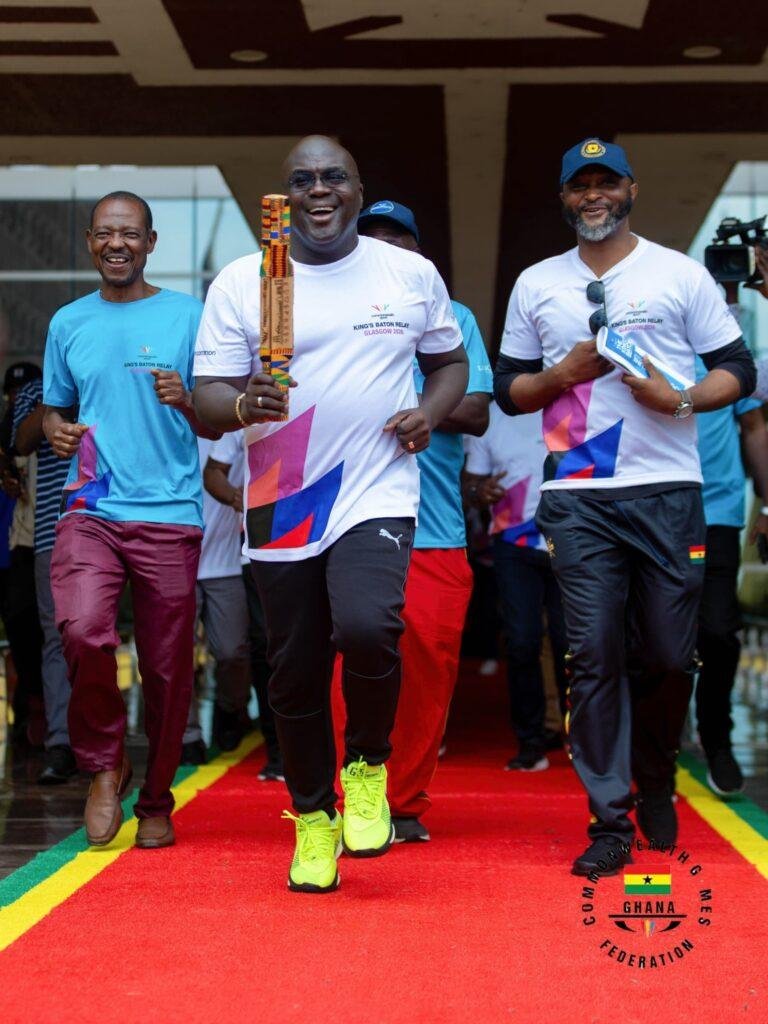
Albert’s love for art was born from curiosity. Surrounded by the vibrancy of Ghanaian culture; the patterns of kente, the stories behind Adinkra symbols, and the textures of daily life, he began sketching and crafting early on.
“Simple things told deep stories,” he says. “That fascinated me.”
As he matured, his art evolved into a personal mission to preserve and reinterpret Ghana’s heritage for a modern audience. His style reflects a seamless blend of culture and contemporary design, each piece a narrative of unity, history, and pride.
“I see art as storytelling through form and symbolism, it should feel rooted in purpose yet speak to today’s world,” he explains.
When the call came to design Ghana’s version of the King’s Baton, Albert saw it as both a national duty and a creative calling.
Recommended by mentors like Mr Charles Osei Asibey, who trusted his talent and understanding of Ghanaian symbolism, he embraced the project wholeheartedly.
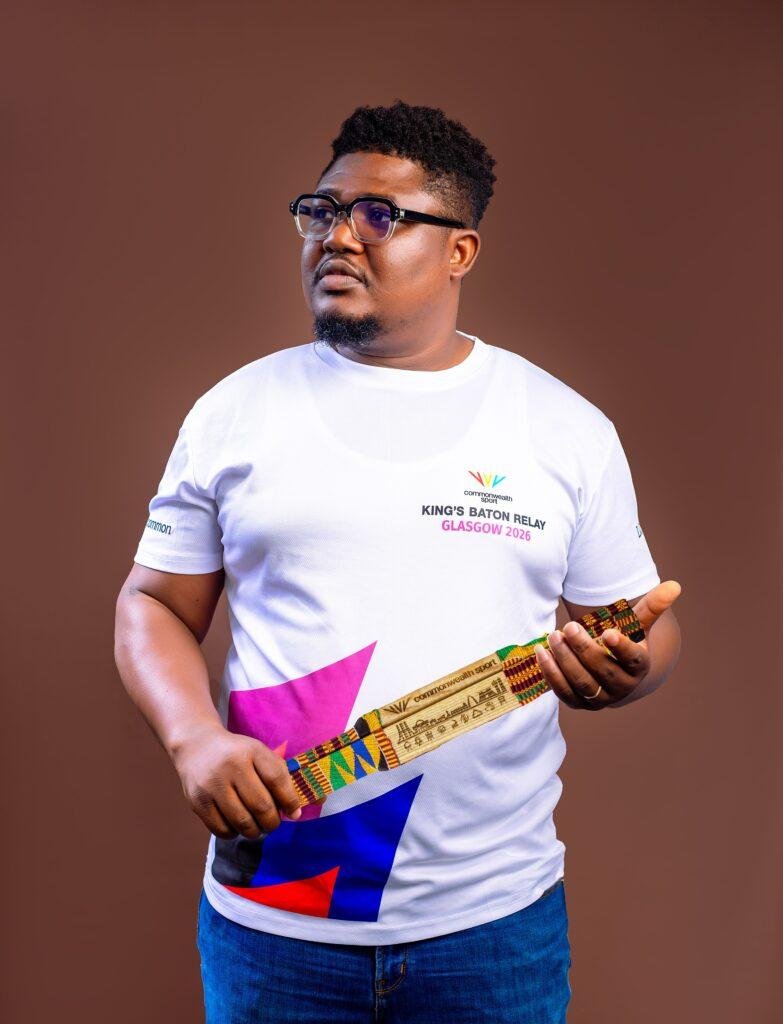
His vision was clear; to create a piece that would embody unity, pride, and the enduring spirit of Ghana.
Drawing from traditional motifs, he integrated textures inspired by kente weaving, representing hard work, continuity, and creativity. The golden tones symbolise strength and dignity, while the contours and natural motifs mirror Ghana’s landscapes and people.
“The King’s Baton had to tell our story of who we are, what we value, and how we see the world, it is more than art, it is identity in motion,” he said.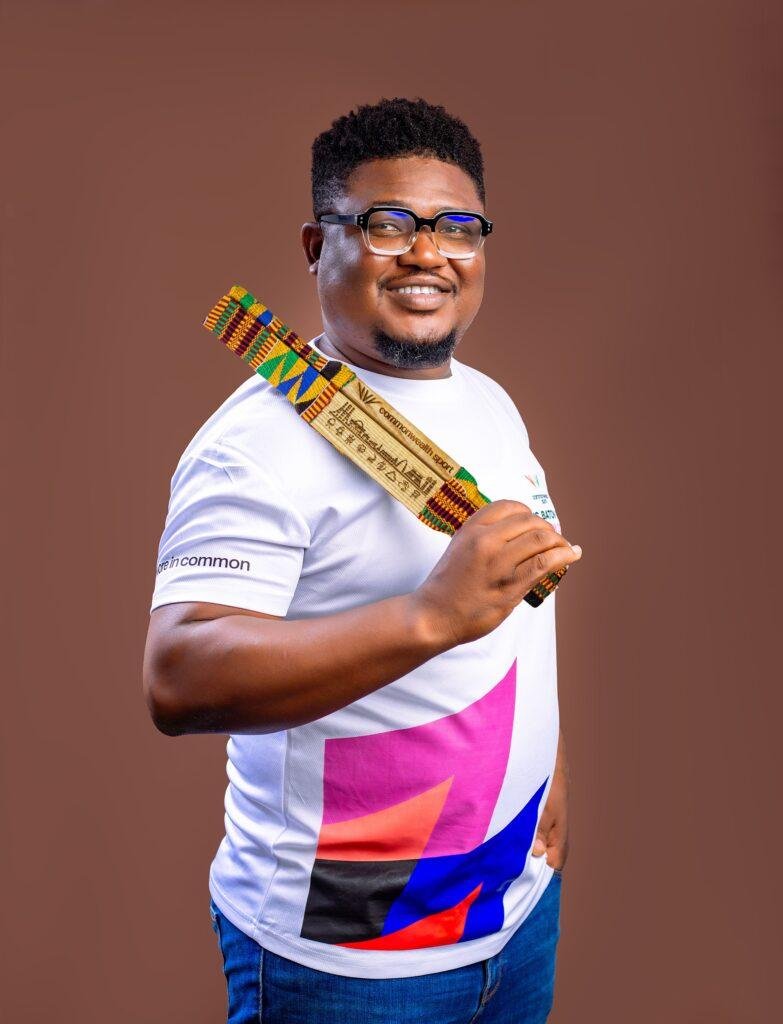
Every etch, every pattern carries meaning. From concept to completion, the entire process took three intense weeks which were filled with research, design sketches, consultation, and collaboration with skilled artisans.
“It was days and nights of work, but a lifetime of meaning,” he says with quiet pride.
Creating a design that represents all of Ghana’s diverse cultures was no small feat. Albert had to balance aesthetics, authenticity, and technology thereby using sustainable wood, carefully treated and certified, to reflect the nation’s commitment to nature and preservation.
“It wasn’t easy finding the right mix,” he admits. “But those challenges pushed me to think deeper. They made the final piece stronger — both artistically and symbolically.”
For Albert, Ghanaian culture is both muse and message. His works echo the values of unity, strength, persistence, and wisdom, drawn from Ghana’s traditions.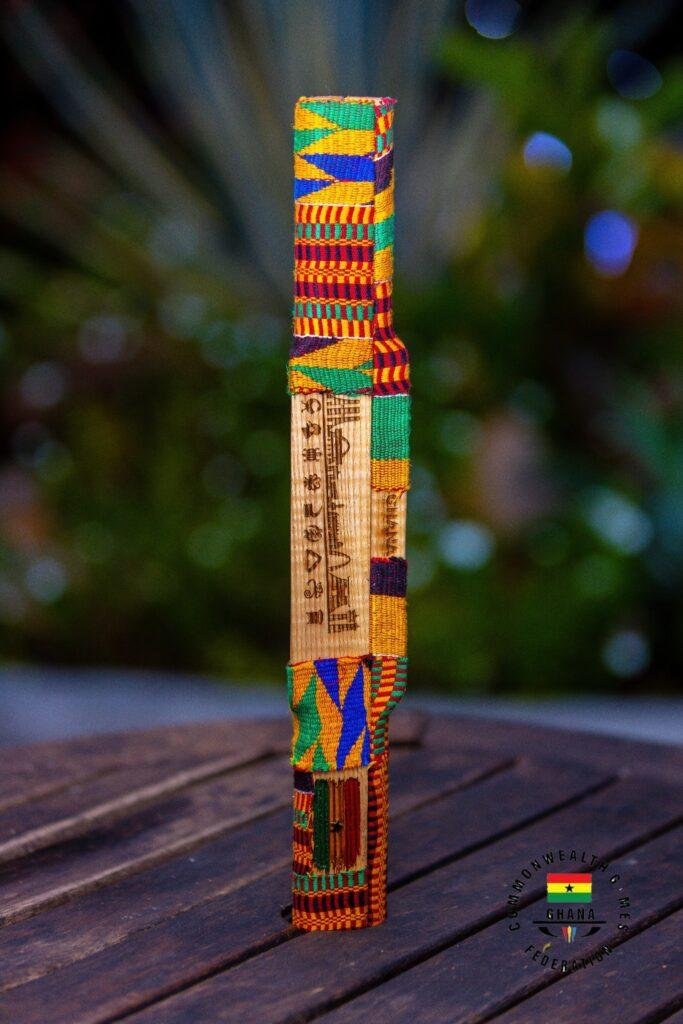
“Art preserves who we are and every line and symbol tells a story of belonging,” he said, and believes art is one of the most powerful tools for building national pride.
Designing the King’s Baton has been a defining moment in his creative journey and that it deepened his appreciation for cultural storytelling. “It taught me that creativity is also a form of service,” he said.
The experience has opened new professional doors, but more importantly, it gave him a renewed sense of purpose making him embrace a call to national duty.
“My soul will be glad even after my days on earth are over,” he said beaming with smiles.
Beyond the King’s Baton, Albert has worked on numerous projects celebrating Ghanaian identity through contemporary art and design. His ongoing works explore symbolism and heritage in new forms which includes blending materials, stories, and styles from across Ghana’s regions.
He is currently preparing projects that continue the conversation the baton began. They are about unity, creativity, and Africa’s evolving artistic voice.
To young artists aspiring to make their mark, Albert’s advice is for them to believe deeply in their craft and that the world is always looking for authenticity “which comes from knowing who you are and where you come from.”
On how he wants to be remembered, he said, “I want to be remembered as an artist who used creativity to celebrate culture and connect people. If my name is remembered as the one who designed Ghana’s version of the King’s Baton, that will be enough, because it means I carried Ghana in my hands, and shared her with the world.”
By Esinam Jemima Kuatsinu
Join our WhatsApp Channel now!
https://whatsapp.com/channel/0029VbBElzjInlqHhl1aTU27
Profile
Survival to service: Margaret Odame Donkor the breast cancer preacher
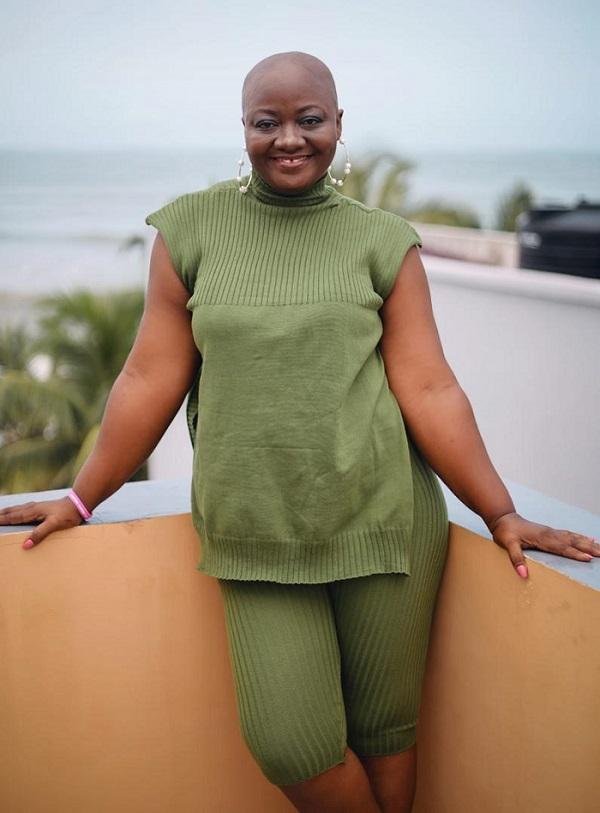
A ‘trotro’ bus heading to Nsawam was filled with the usual sounds from conversations, music, and sometimes a preacher delivering a message.
But when Margaret Odame Donkor rises to speak, she does not preach salvation or sell herbal remedies. Instead, she shares her journey as a breast cancer survivor, urging passengers to examine their breasts regularly, seek medical help early, and never lose hope.
Her pulpit is not a church, but the crowded minibuses of Ghana’s public transport system. Her message is not about repentance, but about survival.
She urges women to check their breasts regularly, encourages men to support their wives during health challenges, and reassures everyone listening that a cancer diagnosis is not the end of life.
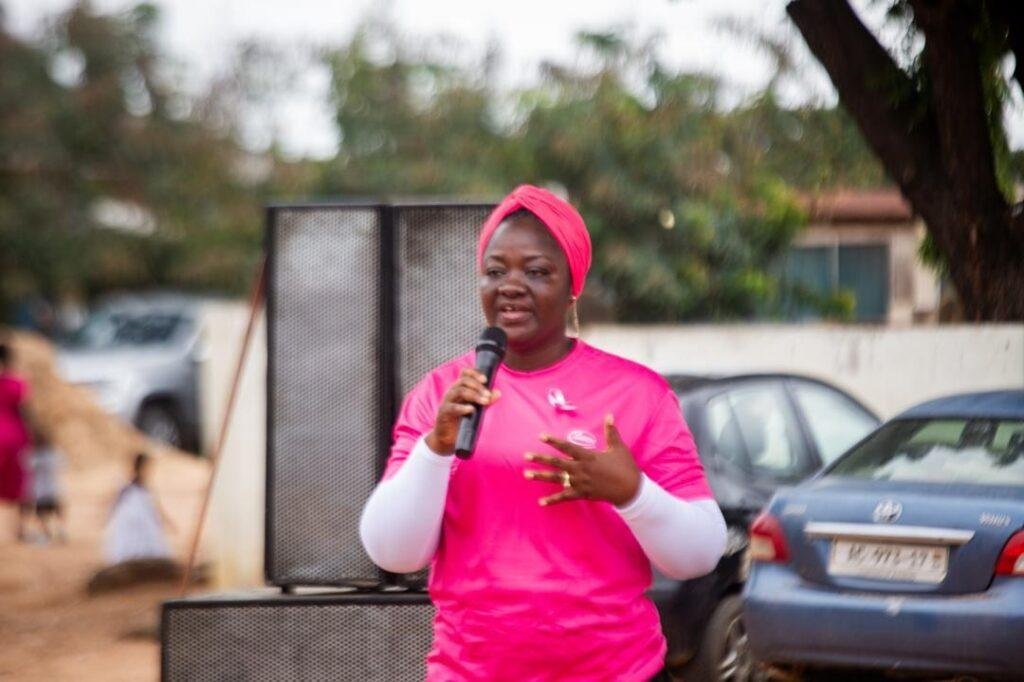
For Margaret, creating awareness is more than a duty-it is a calling born out of personal pain, fear, and triumph.
Her words carried weight because they come from lived experience.
At age 48, Margaret has walked through the valley of fear and pain, battled stage three invasive carcinoma, and emerged not just a survivor but an advocate determined to educate others.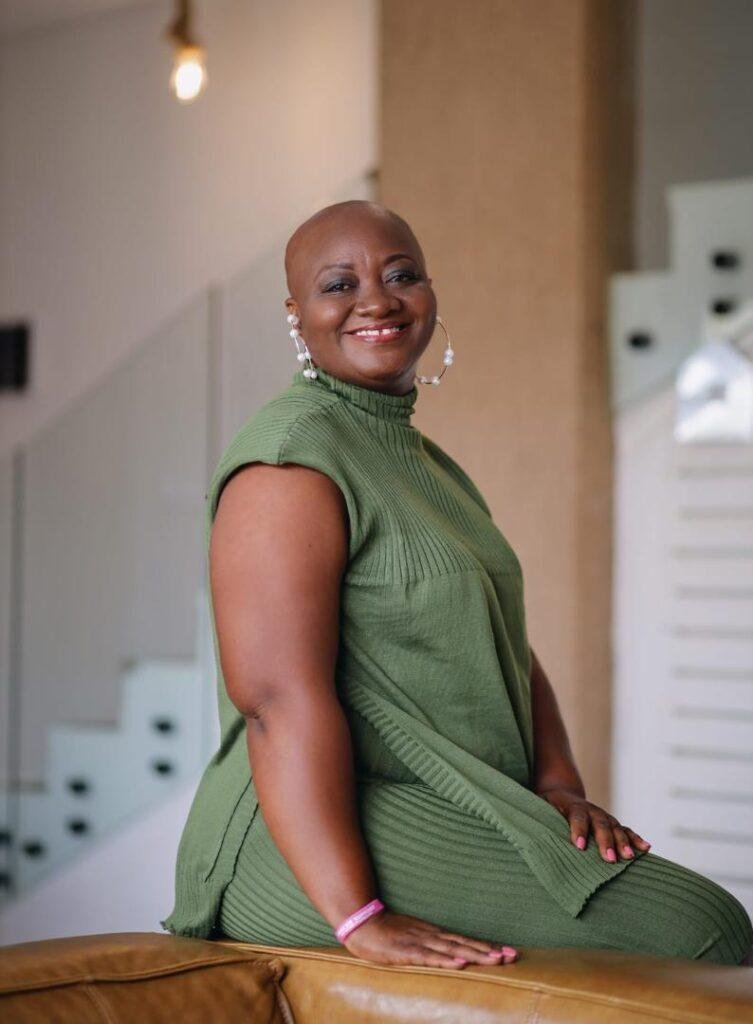
Cancer journey
Margaret’s encounter with breast cancer stretches back decades. At 22, she discovered a lump in her left breast. It was removed and declared benign. Relieved, she skipped regular checks and moved on. Then in 2021, the lump reappeared—this time spreading toward her armpit.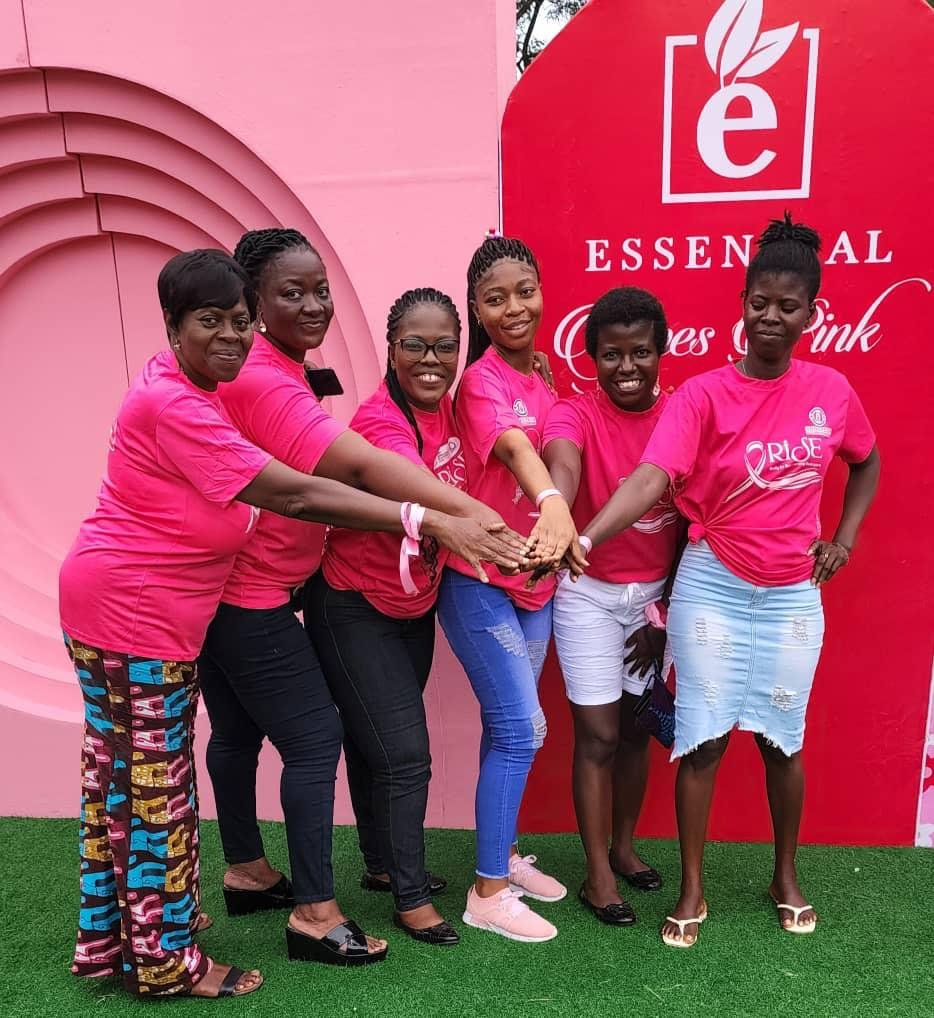
At a church screening in October 2022, doctors detected suspicious lymph nodes. Further tests confirmed her worst fear: stage three invasive carcinoma.
“It wasn’t easy,” she recalls softly. “But my faith in God kept me strong. My husband, children, family, friends, and colleagues formed an army behind me. Their prayers, visits, and encouragement gave me the courage to fight.”
“Be grateful every day because you never know what tomorrow may bring. No one has it all, but with love and support, you can endure,” she stated.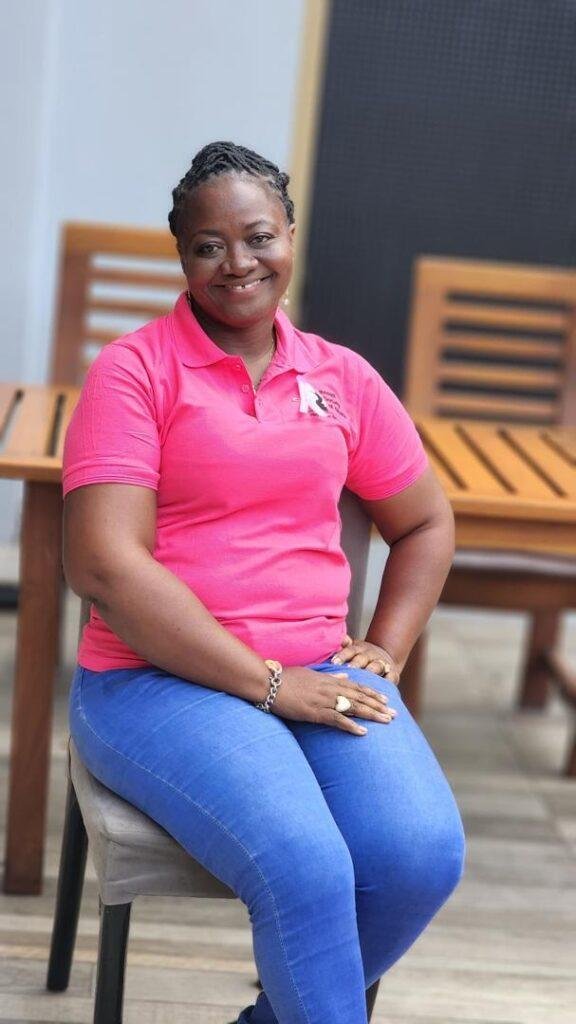
Her greatest fear remains recurrence and not living long enough to see her children graduate and become the people she dreams for them to be.
Before cancer disrupted her life, Margaret had found purpose in interpretation. In 2020, a friend spotted a Judicial Service vacancy and encouraged her to apply. After years of unsuccessful attempts at government jobs, she was reluctant, but she tried once more. This time, she succeeded and was posted to the Eastern Region, her home.
Today, she works at the Nsawam District Court, one of the busiest in the area. On a typical day, she arrives at 7:30am, prepares dockets, and confers with magistrates. She interprets proceedings in Twi, Ga, Hausa, and occasionally Ewe, ensuring that justice was accessible to all.
Her role is demanding. Cross-examinations require her to switch quickly between English and local dialects, while marriages often call for interpreting vows in couples’ preferred languages. Still, she thrives. “The registrars and magistrates I’ve worked with have been amazing. They make the environment very comfortable,” she stated.
Beyond the courtroom, Margaret is also an entrepreneur. In 2017, she founded Nubreed Décor, an events decoration business born from her childhood love for beautifying spaces. She recalls cutting paper decorations as a child and helping her cousin rent out chairs and decorate venues.
Balancing décor with court work was tough, and her health struggles after surgery made it even harder. Radiation left her with persistent rib pain, forcing her to slow down. “Now I hire more hands, which makes business expensive, but it helps me achieve my goals,” she explained.
Her biggest challenge as an entrepreneur remains finance. “The event industry is huge, but I have to work at my own pace and focus on my niche,” she admited.
Cancer changed how Margaret values people and relationships. She learned that those you least expect often become your strongest supporters. She urges families to stand by patients with prayers, encouragement, and financial support, reminding society that a cancer diagnosis is not the end of life.
Her advocacy extends beyond awareness talks. She dreams of establishing a counselling centre for young people and hopes Ghana will expand access to mammograms and radiotherapy centres. “Every patient deserves a chance at survival,” she said firmly.
She urged the youth to live peacefully and be their brother’s keeper, learn to be content and rely on God.
To women, she asserted that, “love yourselves and make breast checks routine while calling on Ghanaians to be open-minded, avoid being judgmental, and show love.
By Esinam Jemima Kuatsinu

 Profile6 days ago
Profile6 days agoAlbert Litela Obidiaba: The artist who wove Ghana’s soul into the King’s Baton

 News6 days ago
News6 days agoDaddy Lumba’s wife, children run to court to injunct December 6 funeral arrangements

 News1 week ago
News1 week agoPresident Mahama to meet Auditor-General, Chief Justice and Attorney-General over misuse of public funds






